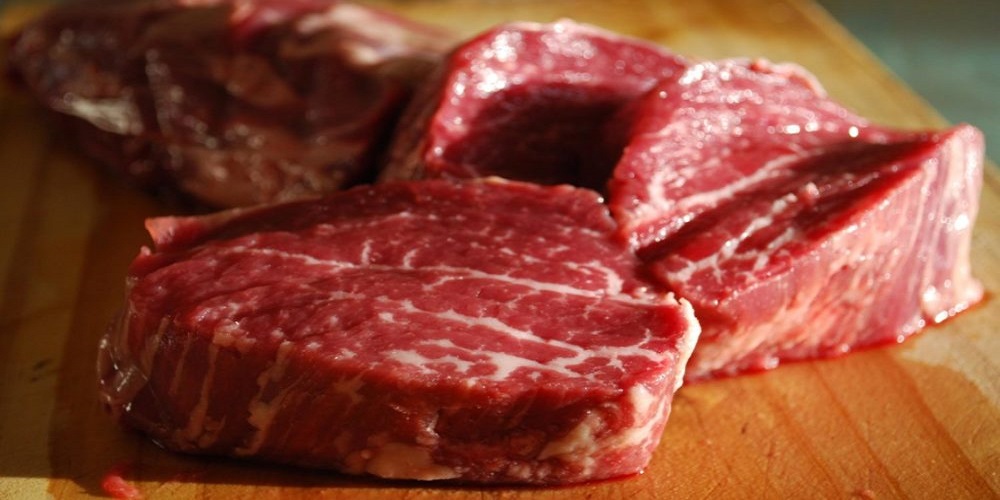
Brazilian meat exports set to soar in 2024; China drives growth
Dec, 20, 2023 Posted by Gabriel MalheirosWeek 202346
Brazil’s meat exports are expected to grow in 2024, owing to strong demand, particularly in China, and ample supplies of beef and chicken. Animal supply will increase at a slower rate in the pork market, but growing restrictions in competitor countries are expected to stimulate demand for Brazil’s protein.
Rabobank estimates that Brazilian beef sales to the international market, led by the Chinese market, will grow by 2% to 3% next year. Brazil exported 2.3 million tonnes from January to November this year, according to the Brazilian Association of Meat Packers (Abrafrigo). The bank calculates that the total volume of Chinese protein imports will increase by 6% to 7% compared to 2023, which is equivalent to 200,000 tonnes.
“This should directly favor Brazil, which is already the largest exporter to China,” said Rabobank analyst Wagner Yanaguizawa. Brazilians currently account for 41% of all beef imported by China. In addition to the increased volume, Chinese importers are expected to pay slightly higher per ton for the product.
The chart below, developed with DataLiner data, shows Brazilian exports of beef to China between Jan 2019 and Oct 2023.
Beef exports to China | Jan 2019 – Oct 2023 | WTMT
Source: DataLiner (click here to request a demo)
Abrafrigo’s President, Paulo Mustefaga, told Valor that beef shipment volumes are expected to wrap 2023 up with an increase of 4% to 5%. However, revenue is likely to fall by about 20%, still pressured by the low prices of exported tons, especially to the Chinese market.
“I believe that the price that China pays will react over the next year. Everything hinges on their economic recovery, which appears to be progressing,” he said. Exporters should not expect prices to return to the levels seen between 2021 and 2022 – more than $7,000 per ton – although a rate over $5,000 is a reasonable bet.
Mustefaga also stated that the reduction in beef supply in the United States due to a low cycle in the number of animals available for slaughter makes Brazil more competitive. There is a chance that the country will increase sales to the United States in order to supplement production there, as well as an opportunity for Brazilians to supply markets that Americans may eventually be unable to serve.
For the poultry and pork markets, the outlook is also optimistic. Pork exports are expected to reach 1.3 million tonnes in 2024, a 6.6% increase compared to the projected volume for this year, estimated at 1.22 million tonnes, according to the Brazilian Animal Protein Association (ABPA).
Meanwhile, chicken exports are expected to reach 5.2 to 5.3 million tonnes in 2024, topping this year’s figures by up to 3.9%, which, according to the association, will range between 5.05 and 5.15 million tonnes. “Avian influenza may play an even more active role in the Northern Hemisphere with the arrival of winter, and Brazil may be called upon even more to provide [chicken],” said ABPA President Ricardo Santin.
According to the entity, the peak of bird migrations to Brazil has passed, which is expected to slow down the emergence of new outbreaks of H5N1 avian influenza in the country. However, the order in the sector is to continue with the prevention practices adopted in recent months, ensuring biosecurity and open markets for Brazil worldwide.
In contrast, the Rabobank analyst noted that chicken production may recover next year in the US and Europe, especially in Poland, France, Italy, and Ukraine. There is also an expected recovery in production in China, making the competition in global trade more intense.
As for pig herds, Rabobank’s expert, Wagner Yanaguizawa, sees a contrary movement, with a contraction in supply in various countries, increasing Brazil’s competitiveness in the international market. “Of the four main players [in pork production], only Brazil is going against the tide, with a projected increase in supply of 3% to 4% in volume,” he said.
China’s production is expected to decline due to a new wave of African swine fever, leading Rabobank to estimate an 8% increase in pork imports in 2024. Brazil is expected to meet a significant portion of this demand.
Source: Globo Rural
Click here to read the original news piece: https://globorural.globo.com/pecuaria/noticia/2023/12/china-puxara-aumento-de-embarques-brasileiros-de-carnes-no-proximo-ano.ghtml
-
Trade Regulations
Mar, 02, 2020
0
200 employees at LG’s Taubaté unit go on holiday due to lack of imported parts from China
-
Ports and Terminals
Feb, 17, 2020
0
Salvador Port handles highly specialized project cargo worth R$2 billion
-
Tradelane Graphs
Sep, 04, 2018
0
DataLiner Tradelane graphs | January to July 2018
-
Environment
Feb, 22, 2024
0
Sustainable production criteria could boost sales to China


